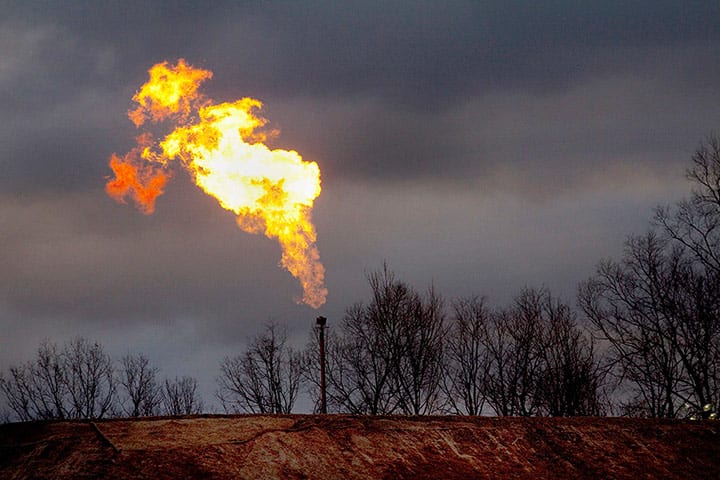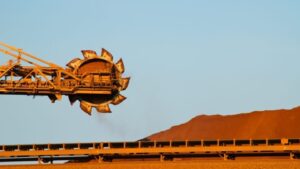The current issue of the British Medical Journal (BMJ) writes, “Oil and gas companies have won in their strategy to become intricately entangled with the solutions to the climate crisis that they have contributed to, worsened, and profited from. ….. There is a clear challenge for academia, as with the tobacco industry, to release itself from the scientific grip of Big Oil”.
The statement refers to a BMJ investigation into fossil fuel funding to prestigious US universities, namely Princeton, Stanford, Massachusetts Institute of Technology (MIT) and the University of California.
In 2011, MIT released a report that found natural gas could replace coal by “reducing carbon dioxide emissions, acting as a ‘bridge’ to a low-carbon future.” One year later, President Obama launched the fracking boom and MIT’s Ernest Moniz, who oversaw the report, was appointed Secretary of Energy, to deliver it.
Also notably in 2011, France, not subjected to intense fossil fuel lobbying, banned fracking because of accumulating evidence of environmental harms, in sharp contrast to federal governments of the three major developed English speaking countries.
Direct harms to health from gas developments
Since 2011, hundreds of scientific papers from recognised US researchers have provided evidence linking health impacts, ranging from lower birth weight, severe birth defects, asthma and other respiratory disease, mental distress and illness, heart attacks, heart failure, cancers and all-cause mortality, to living near gas and oil extraction operations.
These findings are largely ignored in the US EPA report on Unconventional Oil and Natural Gas Development (2022) which focuses only on air, water and land contamination and fails to mention that the causative exposures and pathways of these human impacts are far from understood.
Today, Australian governments continue to embark, promote and subsidise massive gas/oil projects. This is despite many Australians, like all humanity, reeling from burgeoning effects of climate change from rising CO2 and methane emissions and growing alarm regarding risks of contamination from fracking and the insecurity of many of our water sources.
Inexplicably, the vast experience of North American researchers working vigorously to document the physical, mental, social and economic impacts and environmental injustice of living near gas/oil developments is ignored or dismissed as insufficient or irrelevant.
For example, Justice Pepper, who led the NT Fracking Inquiry, felt satisfied that gas developments could be safely managed across the Territory if 135 recommendations were met.
The current perceived need for economic growth and consumption must have resulted in the consolidated two-year effort, a Strategic Regional Environmental and Baseline Assessment (SREBA) – aiming to provide the baseline and monitoring data sufficient to protect affected communities, as if equivalent to the existing findings from over a decade of extensive research on populations exposed to fracking.
Gas extraction uses vast quantities of water that carries hundreds of chemicals, both introduced as drilling muds and fracturing fluids and stored naturally for millions of years in water bathing coal seams and in shale deposits. These chemicals can affect the respiratory, endocrine, nervous and cardiovascular systems, and exposures are associated with obesity, diabetes, reproductive abnormalities including lower sperm counts, and cancers.
Among these are chemicals that can disrupt our endocrine system and change the way that our body sends and receives signals about our growth and development, reproductive functions and normal metabolism.
Many studies have found evidence of endocrine disrupting activity in wastewater and air samples nearby gas developments which is particularly worrying, because these chemicals act at extremely low concentrations. They are costly, difficult to detect and poorly understood. These chemicals are sometimes called ‘forever chemicals’, because they last a very long time in the environment.
One of the most familiar of these chemicals are the per- and polyfluoroalkyl substances (PFAS and PFOAs) used in fracking to help water penetrate rocks. Australians have become familiar with PFAS due to contamination at many sites across the country where airports and military installations have used PFAS-containing firefighting foam.
Physicians for Social Responsibility (PSR) revealed that PFAS or its precursors were used in fracking at least 1,200 wells in six US states between 2012 and 2020 together with their demographic data.
In Australia, minimal attention has focused on the presence of PFAS or chemicals with endocrine disrupting capacity of wastewater in regions of Queensland, where extensive coal seam gas mining is occurring, or in water testing for proposed developments. Many studies have confirmed that life surrounded by gas developments brings great uncertainty and stress.
The Beetaloo enquiry
The Senate enquiry into the Federal Register of Legislation on Industry Research and Development (Beetaloo Cooperative Drilling Program) Instrument 2021 raises many unanswered questions relevant to the massive gas developments planned for Australia.
Our own submission (number 09) summarises evidence of some potential impacts and risks and concludes that the potential for harm to people, water, climate and the environment far outweighs the purported advantages, likely to be enjoyed by a select few.
We urge the government to put its money where its mouth is on gas/oil developments, and listen, as promised, to the voices of First Nations people, such as the Gomeroi women on the ABC’s Q&A:
“Santos is about to drill into our Great Artesian Basin. This is the largest water – underground water reservoir – on this continent. How come – while we’re talking about moral authority, the voice of the First Nations people and relationship to the land – is Santos allowed to frack into our only underground water reservoir and contaminate it irreversibly? Where the river systems depend on it, our existence depends on it.
“The Gomeroi women hold the laws, the water laws to that country, and Pilliga is going to be raped and pillaged as a result. This is going to affect all of us, because water is life, and that is priceless against mining corporations. Please, hear the plea of the Gomeroi women. Please hear it. Pilliga and the Great Artesian Basin is in danger.”
This comment reveals an absolute truth – that, like the Land, the climate, clean air, personal safety and justice, water safety and security is essential for all life, far more importantly than as a commodity for extractive industries.
The risks are now well known and evidence is placed before the decision-makers who must prioritise our health and our future generations. The fact that major gas developments are still being considered suggests that our governments have yet to release themselves from the tentacles of Big Oil and Gas.
Professor David Shearman AM PhD FRACP FRCPE, is E/Professor of Medicine, University of Adelaide, South Australia and Co-Founder, Doctors for the Environment Australia.
Dr Melissa Haswell is Professor of Practice (Environmental Wellbeing), Portfolio of the Deputy Vice Chancellor Indigenous Strategy and Services at University of Sydney and Professor of Health, Safety and Environment, School of Public Health and Social Work at Queensland University of Technology.









